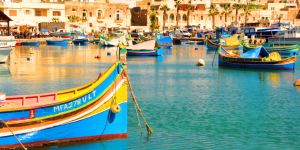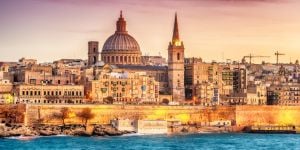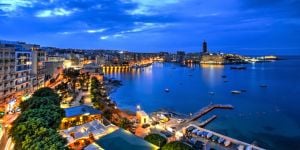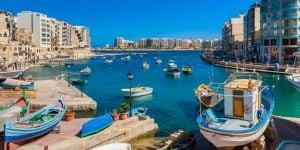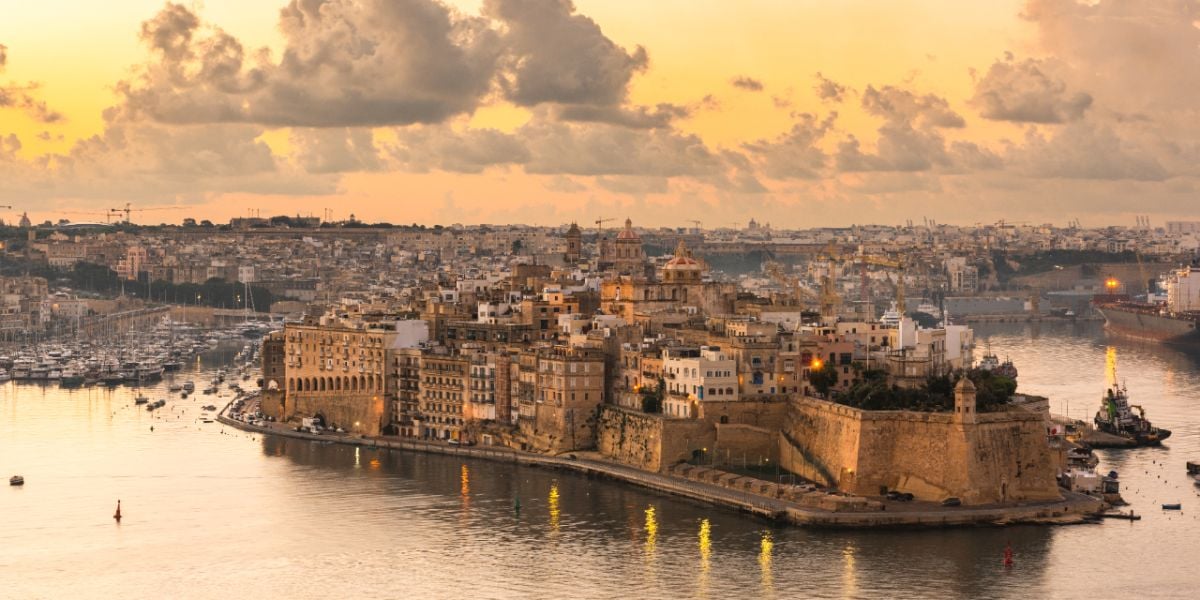
Nestled in the heart of the Mediterranean, Malta captivates with its year-round sunshine, deep historical roots, and vibrant economy. As a natural crossroads between Europe, Africa, and the Middle East, this island nation draws students, expats, and curious travelers alike—each seeking a unique blend of culture, opportunity, and a high quality of life.
Key information about Malta
Get to know Malta with these main facts:
The archipelago is located in the center of the Mediterranean, making it easily accessible to Europe, Africa, and the Middle East. Its immediate neighbors are Italy, Tunisia, and Libya.
Maltese people enjoy 300 days of sunshine a year.
It's relatively easy to find housing in Malta, although rent prices have increased faster over the past three years compared to the rest of Europe.
Malta has a stable economy.
Home to a wealth of historical and archaeological treasures, Malta is also a proud member of the European Union.
There is no shortage of leisure activities in Malta, which is also renowned for its jazz festival held every July.
An increasing number of students are coming to Malta for higher education.
Geography of Malta
Malta is located in the middle of the Mediterranean Sea. The archipelago consists of three islands: Malta, Gozo (also called Għawdex), and Comino (also called Kemmuna). Spanning a total of 316 km², it is home to 519,562 inhabitants (2021 census).
Valletta is the capital of Malta. Listed as a UNESCO World Heritage Site, it is also the smallest capital in the EU.
Malta's economy
Malta's economy is primarily focused on foreign trade, manufacturing, tourism, and financial services.
In recent years, the online gaming sector grew significantly.
Film production is another expanding sector, with feature films like Gladiator, Troy, World War Z, The Count of Monte Cristo (2002), and Captain Phillips all filmed in Malta.
With a low corporate tax rate and a productive, multilingual workforce, Malta's economy is considered advanced and highly industrialized.
Agricultural production is quite low, with Malta producing only about 20% of its food needs.
History and politics of Malta
Malta's history is rich! It spans thousands of years and boasts multiple cultural influences.
Archaeological discoveries indicate that the Maltese islands have been inhabited since 5900 BC. Some of the world's oldest freestanding structures are found here, even older than Stonehenge, Newgrange, and the Pyramids of Giza. The Phoenicians and Romans claimed the islands at different times over the following millennia.
In AD 60, the apostle Paul was shipwrecked and stranded on the shores of Malta. He remained on the island to preach Christianity, which remains the predominant religion of the archipelago today.
Malta was under Byzantine rule for several centuries until the Arab-Byzantine wars of the 800s. Following these battles for Mediterranean territory, the Maltese islands remained virtually uninhabited for over 100 years.
In 1048, Muslims from Sicily recolonized Malta, introducing irrigation, new agriculture, and most importantly, the language that would become modern Maltese.
The Normans and the Kingdom of Sicily soon took control of the islands, reintroducing a Catholic majority. Malta then became part of the Holy Roman Empire under Spanish control. In 1530, the Knights Hospitaller (also known as the Knights of St. John, later the Knights of Malta) were allowed to settle in Malta after being expelled from Rhodes by the Ottoman Empire.
The Knights of St. John had a significant impact on present-day Malta. They withstood the Great Siege of 1565, repelling the Ottomans' efforts to make the islands a launching point for invading southern Europe. As a thank-you, the Spanish crown sent monetary gifts to the knights to halt the Ottoman advance and consequently protect the rest of Europe from attacks. With this financial support, the Knights of St. John planned and built the new capital, Valletta.
Over the past 500 years, Malta has been under the control of Napoleon, under British protection, and endured constant bombings by German and Italian planes during World War II.
In 1964, Malta finally gained its independence. For 10 years, Queen Elizabeth II served as the country's head of state until 1974, when Malta was declared a republic.
Malta officially joined the European Union on May 1, 2004, and entered the Eurozone on January 1, 2008, adopting the euro as its official currency.
Flora and Fauna of Malta
Malta is an arid country without a great variety of endemic flora, unlike other neighboring Mediterranean countries. Prickly pears, berries, grapes, and olives, as well as carob trees, are found throughout the country.
The Maltese fauna is equally limited in diversity, although rabbits, hedgehogs, weasels, bats, and lizards can be found. And let's not forget the marine life, which consists of a wide variety of aquatic species.
Good to know:
To make local phone calls, remember to dial "00356" beforehand.
The Maltese electrical outlets are similar to British outlets, using a three-pin type G plug at 230 volts.
Useful links:
We do our best to provide accurate and up to date information. However, if you have noticed any inaccuracies in this article, please let us know in the comments section below.
